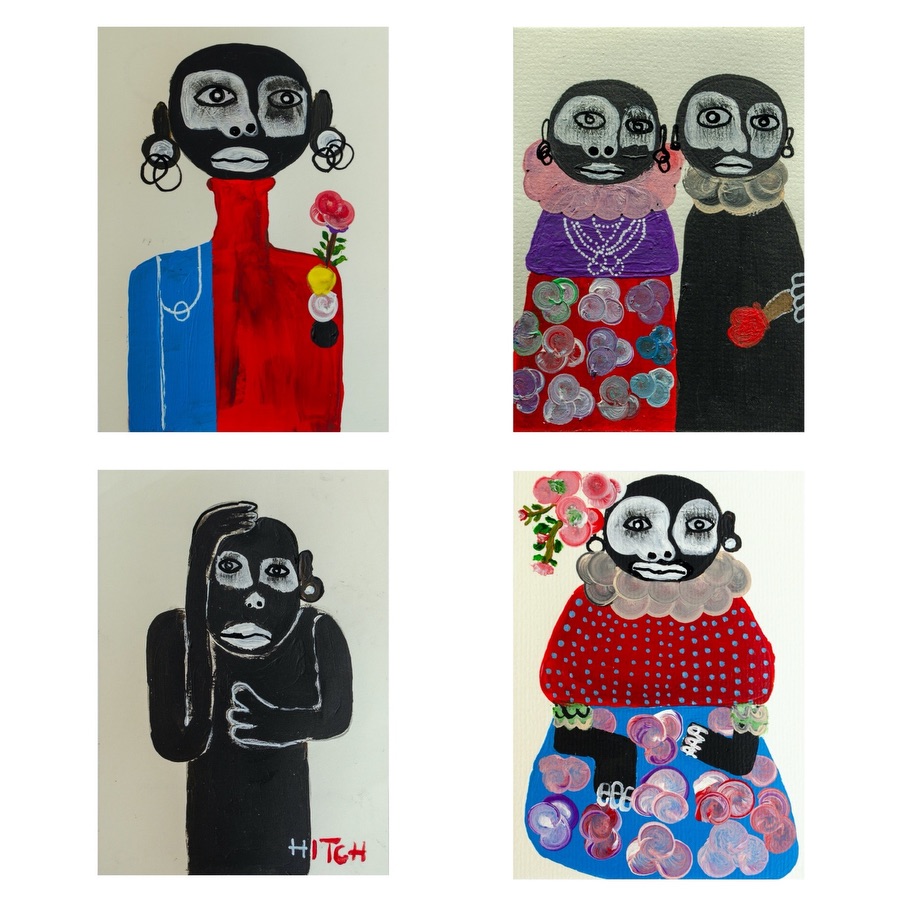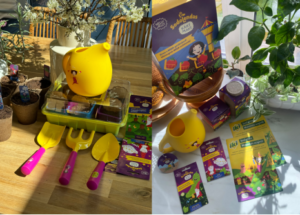Art on a Postcard announce a series of individual monthly auctions

Art on a Postcard (AoaP) is embarking on a series of individual monthly auctions which will focus on one emerging artist. The aim is to explore each artist in more depth than is possible in their larger auctions. A comprehensive interview, a short film and a dedicated week of social media examining the artist’s practice will accompany the Individual Artist Auctions.
Our first auction opens for bidding on 10 December 2020 and will feature London based Ghanaian artist Kojo Marfo. The money raised from the auction will go to raising funds for The Hepatitis C Trust helpline, staffed entirely by people who have had hepatitis C. The helpline has become a key component to the Infected Blood Inquiry, an investigation launched to discover why infected blood
products were being used to treat NHS patients prior 1992. Helpline Information and Support Service Manager Samantha May is compiling supporting evidence for the Inquiry based on statistics and commonalities received from calls made to the helpline. Calls made by patients who have received infected blood during transfusion, that has led to misdiagnosis and subsequently the discovery they have cirrhosis or liver cancer, is on the rise. Keeping up with these calls is now the first priority for The Trust
About Kojo Marfo
Kojo Marfo (born 1980) is a Ghanaian artist based in London. He became interested in the arts because he grew up surrounded by people sculpting and carving. However, Marfo found painting to be the more straightforward way to comment on society and start a conversation.
A vital aspect of his practice is rooted in traditional Akan artifacts he was exposed to as a child growing up in Ghana. These artifacts still remain a vital source of strength to Marfo. He references traditional Akan art to highlight social issues such as inequalities, religion, politics, and spiritualism. Marfo feels that becoming an artist was an essential way for him to express his experiences and observations, while also holding a mirror to society.
Marfo’s work seeks to re-establish the immense richness that is lacking in mainstream representations of African people. He hopes to explore a self-referential perspective of the Black image by creating figurative abstractions that showcase the hidden beauty woven into Africa’s social and geographical fabric.
“I want people to see my work as a reflection of my Akan culture and my struggles living in the West. I want my artwork to create a connection with people, to be a symbol for everyone to relate to” Marfo said. “No matter what you are going through, or where you live, I want my art to help people think and reflect on their inner lives and how it relates to the wider world”.
About The Hepatitis C Trust
The Hepatitis C Trust is the national charity for people with hepatitis C. It is a patient-led and patient-run organisation; most of its board, staff and volunteers have had hepatitis C themselves. It is committed to eliminating hepatitis C in the UK by 2025. Its strategy is based around the pillars of better prevention, increased diagnosis and treatment for all.
It has established strong partnership models of working with substance misuse and homeless service providers across the UK. In substance misuse services, it delivers staff training, peer-led education about the importance of testing and availability of new treatments, and personal one-to-one support from initial diagnosis through to treatment. It runs a range of support services, including a confidential national helpline run by staff and trained volunteers who have all had personal experience of living with hepatitis C.
Helpline staff also provide patient-centred responses via email and run a designated prison freephone helpline service for prisoners across the UK. Its policy and parliamentary team work across the UK Parliament and the devolved nations to ensure hepatitis C stays firmly on the political agenda. It also publishes a range of reports and resources on aspects of the hepatitis C care pathway.




